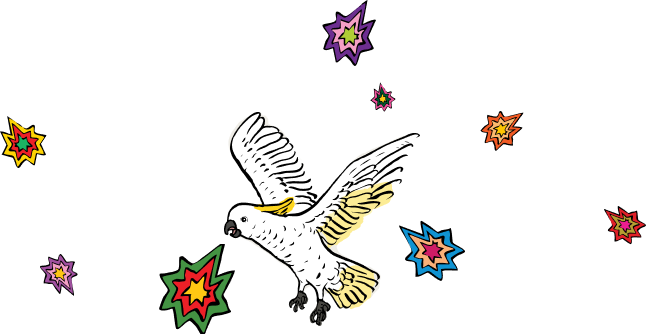Reviewed by: mindshare
Review by Vicki Hollamby |
17 March 2024
Colin Ebsworth is a comedian/story teller from Western Australia. Colin Ebsworth was also raised in a cult.
Matched by a South Korean man who said he was Jesus Christ, Ebsworth’s parents were married in a mass wedding in Madison Square Garden, New York in the 80’s. So began the family’s life in the Unification Church (aka the Moonies). Me, My Cult and I endeavours to tell (in one short hour) stories of the Church, Ebsworth’s immediate family (minus his older sister who does not want to be part of his show), and his extended family.
Ebsworth warns at the beginning of the show that not everyone will be satisfied at the end. He acknowledges that people come to see shows about cults for varying reasons and one hour of story telling cannot provide everything to everyone but he gives it a good go. He is an energetic presence on the stage, telling his story at a rapid pace interspersed with sips of beer and hits from a vape. Accompanying the narrative is a slide show of photos of the Church and his family, giving the audience a visual connection to the story and its characters.
The background information about the Church could have been condensed leaving more time to tell us about his own family and their life. Having said that, the recounts of what the Church expected on wedding nights, and the money making it required of its members, were suitably shocking for anyone fascinated by what cults ask of their members. Ebsworth tells us that his family use comedy as a method of coping and the way he tells us of the wedding night rituals illustrates his talent for story telling with humour.
From a mental health perspective, Ebsworth tells stories of PTSD, suicide attempts, as well as cult practices of isolation and brainwashing. These are balanced by tales of two brothers growing up as friends and a deep love for family. The show takes a sudden serious turn at the end, Ebsworth speaking of generational trauma and the things people will do to find a sense of belonging and meaning in a context where they have none. This was the gutsy stuff that this reviewer was hoping to hear. It felt more authentic and intimate.
The profanity used in the show did not necessarily add anything to the story and became a little tiresome after a while which is something that Ebsworth may want to review for future events. The break in performance to discuss remaining time was unprofessional and, as Ebsworth noted, provided enough of a gap to lose the audience connection.
The story of the Ebsworth family could never be told in 60 minutes but this reviewer was left with more questions than answers and wanting something more.




